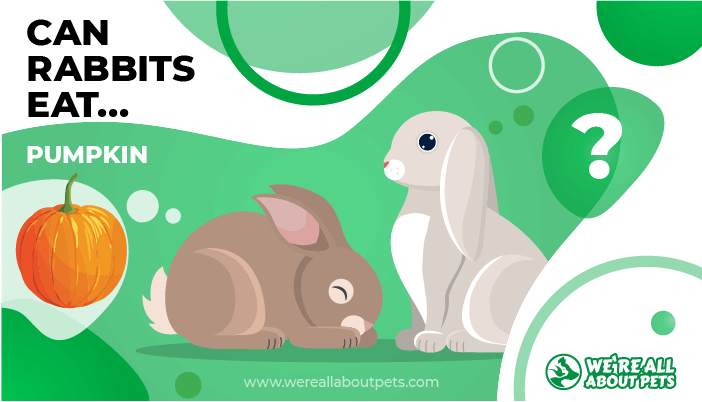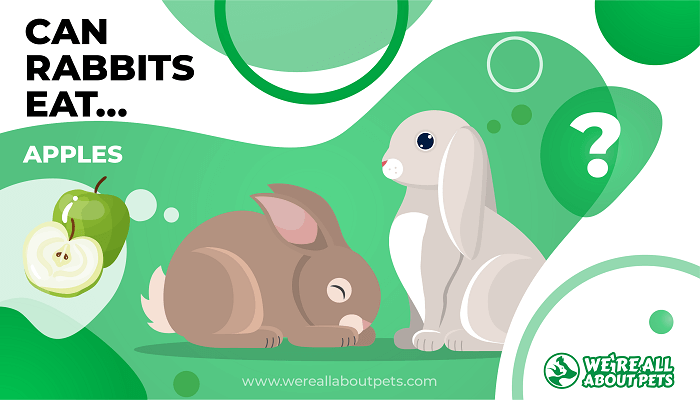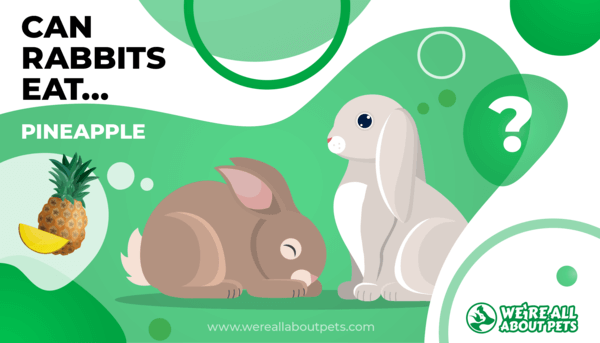Can Rabbits Eat Blueberries?
This page contains affiliate links. We may earn money or products from the companies mentioned in this post through our independently chosen links, which earn us a commission. Learn More
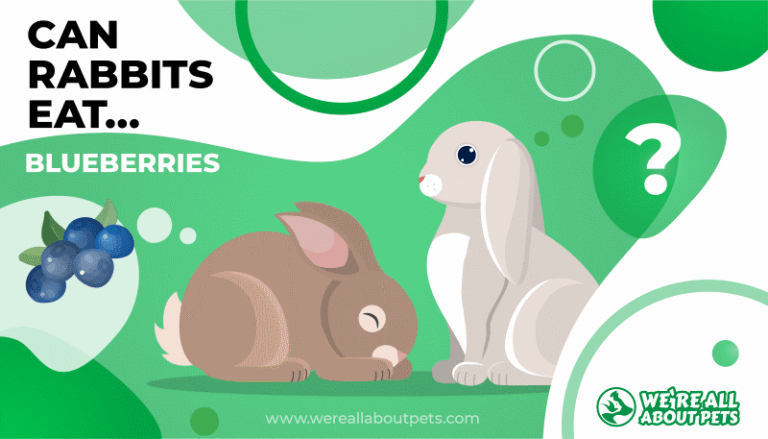
We know that blueberries are a fantastic superfood for humans – but are they OK for bunnies?
The short answer is “yes!” Rabbits can eat blueberries and as treats go, these antioxidant-packed snacks are absolutely fantastic.
There’s more to learn, though. Keep reading to find out how many blueberries a rabbit can have at once – and a whole lot of other great info!
Quick Navigation
Blueberry Nutrition Stats
If you’ve ever been on the hunt for low-sugar fruit as a tasty treat for yourself, then you already know that blueberries are among the best around. You (and your fuzzy friend!) get lots of flavor, some hydration, and tons of nutrients.
An entire cup of blueberries contains:
- 84 calories
- 21 g carbohydrates
- 6 g fiber
- 1 g protein
- .5 g fat
Blueberries Nutritional Facts

Even though they are relatively low in calories and sugar, blueberries are high in quite a few essential nutrients including vitamin C for improved immunity and lower inflammation.
A one-cup serving of blueberries offers:
- 5 mg manganese
- 6 mcg vitamin K
- 4 mg vitamin C
- .1 mg vitamin B6
- .1 mg thiamine
- .8 mg vitamin E
- .1 mg riboflavin
- .1 mg copper
Blueberries also contain trace amounts of iron, magnesium, phosphorus, zinc, folate, and niacin, along with resveratrol, anthocyanin, pterostilbene, and other phytonutrients including the important flavanols myricetin and quercetin.
Can Rabbits Have Blueberries?
Absolutely! Rabbits can have blueberries as an all-natural treat. They shouldn’t be a major component of your bunny’s diet, since eating too many blueberries at once can cause your rabbit problems including weight gain and digestive distress.
Before you head to the farmer’s market to stock up on fresh blueberries for you and your bunny, there are a few more things you should know about blueberries for rabbits.
Are Blueberries Good For Rabbits?
It’s safe for rabbits to eat blueberries – but are there any specific health benefits your rabbit will receive from eating occasional blueberry treats?
Let’s take a closer look:
- Great source of antioxidants may reduce the risk of cancer
- A variety of vitamins and minerals support optimal health
- High in vitamin K, which is essential for carrying minerals throughout your bunny’s body
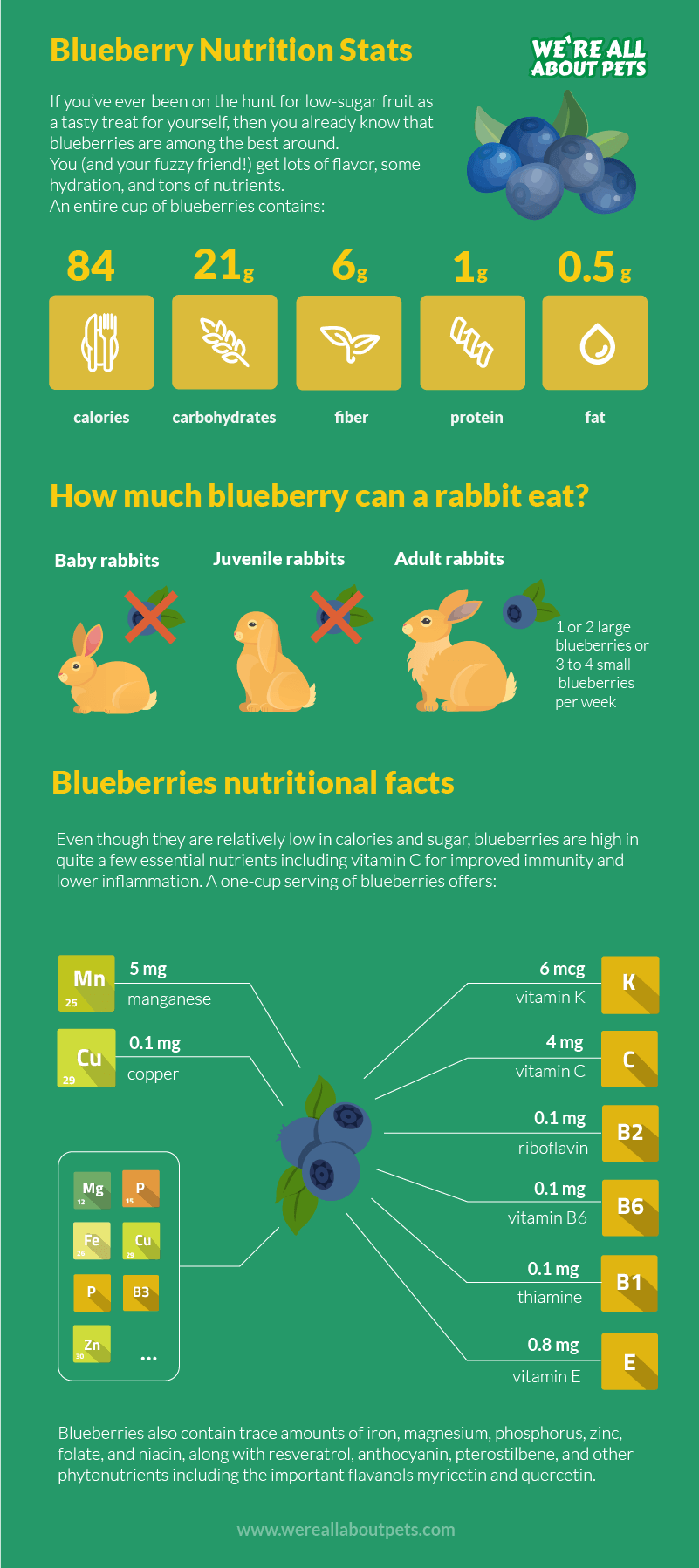
How Much Blueberry Can A Rabbit Eat?
Good question. While we humans can sit down and nosh on an entire bowl of blueberries without suffering from any unpleasant side effects other than blue stains on our teeth and tongues, bunnies need to limit their intake.
Here’s how many blueberries to feed a rabbit:
| Age | Amount |
| Baby rabbits | None |
| Juvenile rabbits | None |
| Adult rabbits | 1 or 2 large blueberries or 3 to 4 small blueberries per week |
Here’s a very important tip for introducing your bunny to new foods: Always start with a very tiny amount to see how your rabbit’s digestive system responds. Sudden changes can cause problems and although we always love to see our bunnies enjoying new treats, we never want to put their sensitive tummies at risk!
Start with half a large blueberry or one small blueberry and then monitor your rabbit for diarrhea over the next several hours. Most rabbits love blueberries and have no problems but you can never be too careful!
How Often Can A Rabbit Eat Blueberries?
Since blueberries contain sugar, you shouldn’t hand them out too often. Additionally, it’s a very good idea to mix things up and give your rabbit different items to expand their nutrient intake. Animal nutritionists recommend that you give a rabbit blueberries no more than once per week.
The Correct Diet is Important
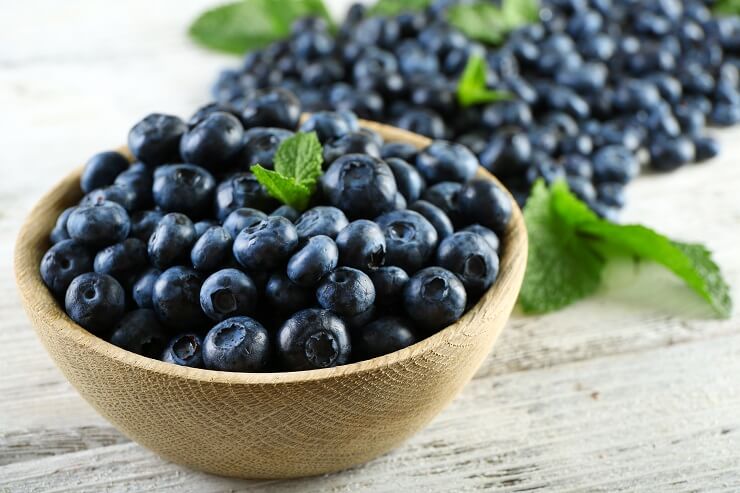
Have you ever watched wild rabbits eat?
If so, you know that they spend their time nibbling on grasses and other green, leafy plants. They do get wild berries occasionally, but these don’t make up a large portion of the rabbit’s natural diet.
It’s crucial to feed your rabbit a diet that’s fully in line with what nature intended.
Here’s what your rabbit should be eating every day:
- Fresh hay – as much as they can eat
- Fresh water – as much as they can drink
- A daily serving of age-appropriate rabbit pellets (The label will tell you how much to feed)
- Fresh salad made with about 1 cup of leafy greens for every two pounds of body weight plus a few crunchy vegetables (check the list below for some favorites)
- A few treats, different items each day, but no more than about a teaspoon of rabbit-safe fruit per two pounds of body weight
- About one tablespoon of seeds (sunflower seeds and pumpkin seeds are favorites) unless they’re already mixed into your rabbit’s food
What Are Other Healthy Alternatives To Blueberries In A Rabbit’s Diet?
Now that you know how many blueberries to give a rabbit, you might be wondering which other treats your bunny might enjoy during the rest of the week. Try herbs, greens, and crunchy veggies without a lot of sugar – and remember to change things up so your rabbit gets plenty of different nutrients.
Most rabbits like:
- cilantro
- parsley
- swiss chard
- mustard greens
- carrot tops
- beet greens
- radish tops
- arugula
- spinach
- romaine lettuce
- buttercrunch lettuce
- broccoli
- cabbage
- red cabbage
- kale
- endive
- dandelion greens
- broccoli
- brussels sprouts
- fennel
- escarole
- yu choy
- bok choy
- bell peppers (not the spicy kind)
- carrots
- beets
- parsnips
- turnips
- fresh clover
Since feeding the same greens on a daily basis can cause a compound called oxalate to build up in the kidneys and cause problems, it’s important to feed a variety of different greens and treats on a rotating basis. Root vegetables are favorite treats but as they’re high in sugar, they should be fed only in small amounts, just like fruit.
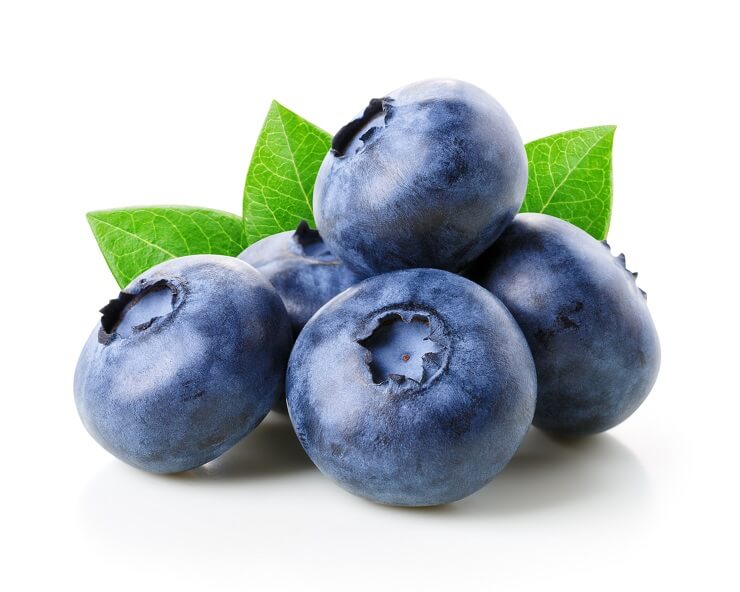
Last but not least, feel free to give your rabbit blueberries once a week or less. It’s a nice change of pace and a fantastic way to add flavor and variety to your bunny’s diet!
Frequently Asked Questions
Are blueberries safe for rabbits?
Yes, and since they’re soft, it’s fine to feed blueberries to rabbits without mashing them or cutting them up. Remember to always follow our advice for introducing new treats gradually. Even if your bunny begs for more berries, don’t give in!
Do remember to wash the berries before you give them to your bunny rabbit. Even if they’re organic, there’s a chance that the berries could have harmful residue on their skin.
Can I give blueberries to a baby rabbit?
When it comes to natural treats for rabbits, blueberries are among the best. Unfortunately though, they’re not ideal for baby rabbits. The reason for this is that baby rabbits have very sensitive tummies and when they get sick, their health declines rapidly. Keep your baby bunny on a strict diet of hay, age-appropriate rabbit food, and very small amounts of mild leafy greens such as buttercrunch lettuce.
Can blueberries make my rabbit sick?
Yes, but only if you make the mistake of feeding too many blueberries at once. Stick to tiny amounts, let your rabbit enjoy them, and eat the rest of the package yourself!
Can rabbits have blueberry stems and leaves?
If you have access to healthy, fresh blueberry stems and leaves that haven’t been treated with chemicals, then feel free to give a few to your rabbit! Unlike blueberries themselves, the stems and leaves are easily accessed by wild rabbits. The stems or woody stalks are great for your rabbit’s teeth – a perfectly natural chew toy!
Even though blueberry stems and leaves are good for rabbits, be sure to offer a small amount at first to avoid any digestive trouble.






